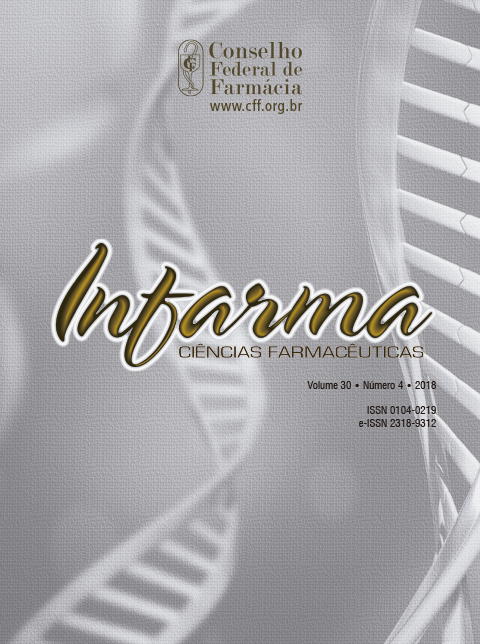Critical analysis on sweeteners and flavoring agents used in the sensory correction of Cannabis extracts for pediatric use
DOI:
https://doi.org/10.14450/2318-9312.v30.e4.a2018.pp230-241Keywords:
cannabidiol, childhood epilepsy, treatment, palatability.Abstract
Therapeutic treatment with Cannabis extracts is sometimes the only alternative in the control of childhood refractory epilepsy. Cannabis sativa is a banned plant in Brazil, but the importation of cannabis extracts has been authorized for medical use in 2015. However, these formulations are not specific for infant use and compromise compliance with treatment due to palatability. The objective of this study was to propose formulations of cannabis extracts that can serve the child population, considering the incorporation of additives as a flavor masking strategy. For this, the compositions of the extracts available in the market were studied, and searches were made on health databases and regulatory agency websites. It was observed that among the alternatives available on the market, only one was adequate for children’s consumption because it incorporated a highly accepted flavoring, besides glycerin, which masks the unpleasant taste of hemp oil. Unconstrained formulations have been suggested for the type of oil incorporated, absent from sweeteners, if the formulation is only oily, and with at least one flavor masking strategy, such as the incorporation of glycerin or the incorporation of flavoring agents. These proposals can be treated with an elaboration of extracts that increase the child adhesion to therapy.
Downloads
Published
How to Cite
Issue
Section
License
Authors who publish in this journal agree to the following terms:
- Authors retain the copyright and grant the journal the right of first publication, with the work simultaneously licensed under the Licença Creative Commons Attribution which allows the sharing of work with acknowledgment of authorship and initial publication in this journal.
- Authors are authorized to take additional contracts separately, for non-exclusive distribution of the version of the work published in this journal (e.g. publish in institutional repository or as a book chapter), with acknowledgment of authorship and initial publication in this journal.
- Authors are allowed and encouraged to publish and distribute their work online (e.g. in institutional repositories or on their personal page) at any point before or during the editorial process, as this can generate productive changes as well as increase the impact and Citation of published work (See O Efeito do Acesso Livre ).


